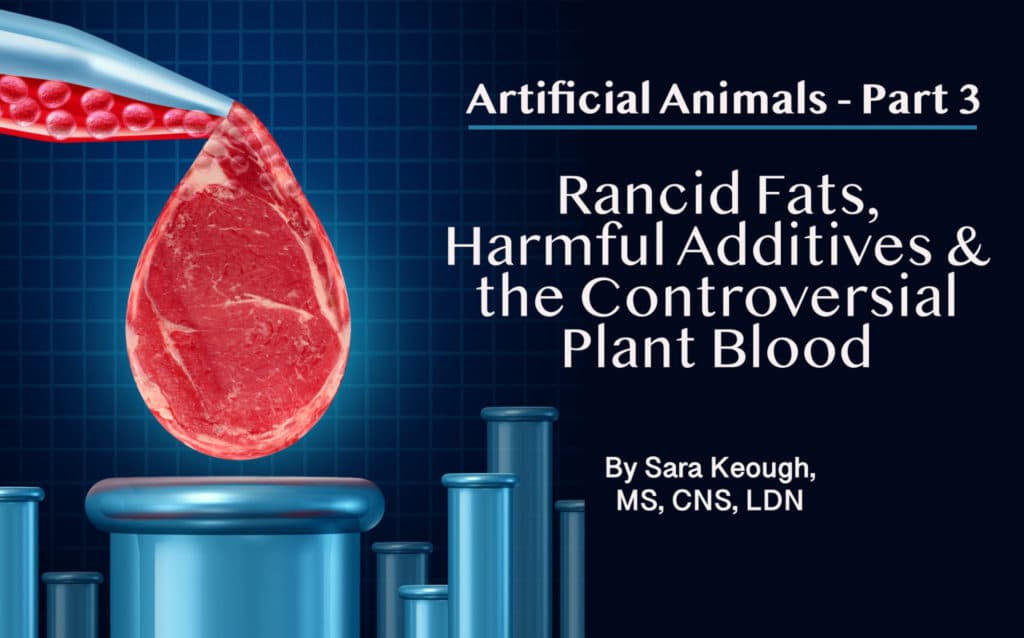
Sara Keough MS, CNS, LDN – Integrative Eco-Nutritionist
Understanding Ag, LLC Technical Advisor
“I do think all rich countries should move to 100% synthetic beef. You can get used to the taste difference, and the claim is they’re going to make it taste even better over time.”
-Bill Gates, 2021
Six years prior to the quote above, Bill Gates wrote an article for his website GateNotes in which he supported meat as part of a healthy human diet. He explained how the Bill & Melinda Gates Foundation worked hard to make sure children in Africa have access to meat, eggs, and dairy because “meat is a great source of high-quality proteins that help children fully develop mentally and physically.” Gates also remarked that “evolution turned us into omnivores” and acknowledged that most people are unlikely to give up eating meat despite any perceived negative impacts on the environment. And, in a previous blog, he commented, “I wouldn’t want to give up hamburgers – one of my favorite foods.”
Yet, within just a few years, Gates has changed his tune and now believes “all rich countries should move to 100% synthetic beef.” But what about the growing children throughout the world, including in “rich” countries, that still need meat to “fully develop mentally and physically?” Or how about the evidence that we are evolutionarily designed to eat meat? And what about his personal love affair with one of his most beloved foods? It seems that Mr. Gates has all but forgotten his earlier praise of the health benefits of meat and instead wants us to adopt a more plant-based diet – by purchasing artificial animal products in which he has heavily invested.

In the third installment of this “Artificial Animals” series on plant-based meats, we’ll take a critical look at the fats, additives, and genetically modified ingredients within these products and their potential harm to human health.
Inflammatory Polyunsaturated Oil Change
It has become increasingly clear that most negative health conditions emerge from chronic inflammation, and the dietary fats we consume play a vital role in how our bodies manage their inflammatory and immune system responses.

Plant-based meats stake one of their health claims on the avoidance of animal fats. However, the theory that saturated animal fats contribute to heart disease and other conditions driven by chronic inflammation has not panned out, and instead many chronic diseases have strongly correlated with the increased consumption of processed polyunsaturated Omega-6 vegetable oils, such as the canola oil and sunflower oil found in most popular brands of plant-based meats.
Unlike traditional diets of the past where anti-inflammatory Omega-3 fatty acids were closely balanced with Omega-6 fatty acids, today’s modern food choices bring the Omega-6 to Omega-3 ratio from a healthy 3 to 1, to a catastrophic 15 to 1 ratio – and sometimes worse. Fatty fish and pasture-raised animals are rich sources of Omega-3 fats, while plant-based meats only add to the Omega-6 imbalance, further driving inflammation.
“Today’s popular plant-based meats barely support the word ‘plant.’”
Additives that Subtract from Our Health
The original “veggie burgers” of decades past actually consisted of mostly whole foods: beans, vegetables, and seasonings from herbs and spices. Today’s popular plant-based meats barely support the word “plant.” They are instead composed of protein isolates, synthesized nutrients, processed oils, and a host of other additives connected with various health issues:
• Yeast Extract – often contains monosodium glutamate (MSG), a known neurotoxin associated with migraines, increased blood pressure, and allergic reactions
• Cultured dextrose – sugar cultured with bacteria that is often linked to digestive issues
• Modified Food Starch – a corn derivative often treated with chemicals that can cause allergic symptoms and may also contain MSG
• Methylcellulose – an emulsifier that can promote gastrointestinal inflammation and has been linked to colon cancer in animal studies
• Natural flavors – often lab-synthesized and can be another hidden source of MSG
Any one of these additives can trigger adverse reactions or exacerbate health issues, and more and more evidence is showing us that food additives can negatively impact our beneficial microbiota.
This new generation of plant-based meats relies heavily on these substances. Calling these highly-processed industrial products “healthy alternatives” strains credulity, to say the least.
“Yet we have taste buds for a reason, and it’s not in our best interest to deceive them.”
GMO Soy Leghemoglobin – “Plant blood” that Disarms the Taste Buds
Perhaps one of the most concerning ingredients in plant-based meats is the genetically modified soy leghemoglobin (SLH) in Impossible™ Food’s products. This novel soy derivative gives a bloody appearance and meaty flavor to the company’s imitation animal products. Because of this, many committed meat-eaters often cannot tell the difference between authentic meat and faux meat in blind taste tests. Yet we have taste buds for a reason, and it’s not in our best interest to deceive them.
This particular leghemoglobin, a natural component of the soy plant’s root system, exists in nature in extremely small amounts. In order for Impossible™ to produce enough SLH to create its plant-based meats, the leghemoglobin had to be industrially manufactured using genetically engineered yeast. The resulting GMO soy leghemoglobin wasn’t previously consumed by humans, which should give us pause.
Initially, Impossible Foods’ products were not granted “GRAS” (generally recognized as safe) certification by the FDA, so Impossible™ commissioned a few, limited animal studies to demonstrate safety – carried out by their own team of scientists. These studies raised deeper concerns.

In an article published on GMO Science, “Rat Feeding Study Suggests the Impossible Burger May Not Be Safe to Eat,” molecular geneticist Michael Antoniou Ph.D., identified the following “statistically significant, potentially adverse effects” of rats fed the genetically modified SLH:
• Unexplained transient decrease in body weight gain
• Increase in food consumption without weight gain
• Changes in blood chemistry
• Decreased reticulocyte (immature red blood cell) count (this can be a sign of anemia and/or damage to the bone marrow where red blood cells are produced)
• Decreased blood clotting ability
• Decreased blood levels of alkaline phosphatase (can indicate malnutrition and/or celiac disease)
• Increased blood albumin (can indicate acute infection or damage to tissues) and potassium values (can indicate kidney disease)
• Decreased blood glucose (low blood sugar) and chloride (can indicate kidney problems)
• Increased blood globulin values (common in inflammatory disease and cancer)
Inexplicably, the FDA reversed their stance and gave GRAS approval to the GMO SLH over the objections of The Center for Food Safety (CFS) who pointed out questions about the legality of the product labeling, the weakness of the studies, and conflicts of interests of the researchers.
The Centers for Food Safety has since filed a lawsuit against the FDA for allowing the product to go to market without adequate safety studies.
To quote the CFS: The “FDA’s failure to require Impossible Foods to conduct long-term tests called for in the agency’s own authoritative guidelines means it does not have ‘convincing evidence’ that this color additive, consumed by millions, is safe,” said Ryan Talbott, staff attorney at CFS.
“The approval of soy leghemoglobin must be revoked, unless and until truly convincing evidence proves it to be safe,” he said.
What makes these industrial meat analogs so concerning is their rapid growth and acceptance by an increasing number of consumers that are taken in by the false promise of a “healthy alternative.” The trend is driven and heavily supported by fast food companies and other food conglomerates that appear uninterested in promoting healthy eating.
“While creating a healthy bottom line for these faux food creators, plant-based meats in no way contribute to the healthy soil and healthy farms that are so needed for healthy humans and a healthy planet.”
Gates and other high-profile investors continue to promote plant-based meats as healthy alternatives in the face of mounting evidence to the contrary, while consumers seem unphased by the conflicting financial interests at play.
While creating a healthy bottom line for these faux food creators, plant-based meats in no way contribute to the healthy soil and healthy farms that are so needed for healthy humans and a healthy planet. In fact, plant-based meats only add to the damage done to soil and ecosystems by deriving ingredients from industrial monocrop operations that rely heavily on pesticides and other destructive farming practices.
So when will we come to realize how far detached many of us are from nature and traditional foods that nourished us for millions of years? When will we begin to take caution with advice from self-appointed experts that are clearly misinformed about human health and seem to know nothing about natural ecological processes? And when will we stop leveraging technology as the only solution to healing this planet and instead embrace biology and nature as part of the remedy?
These are all important questions upon which we should deeply reflect, as regenerating human and ecological health starts with making smart food choices and supporting regenerative farmers.

